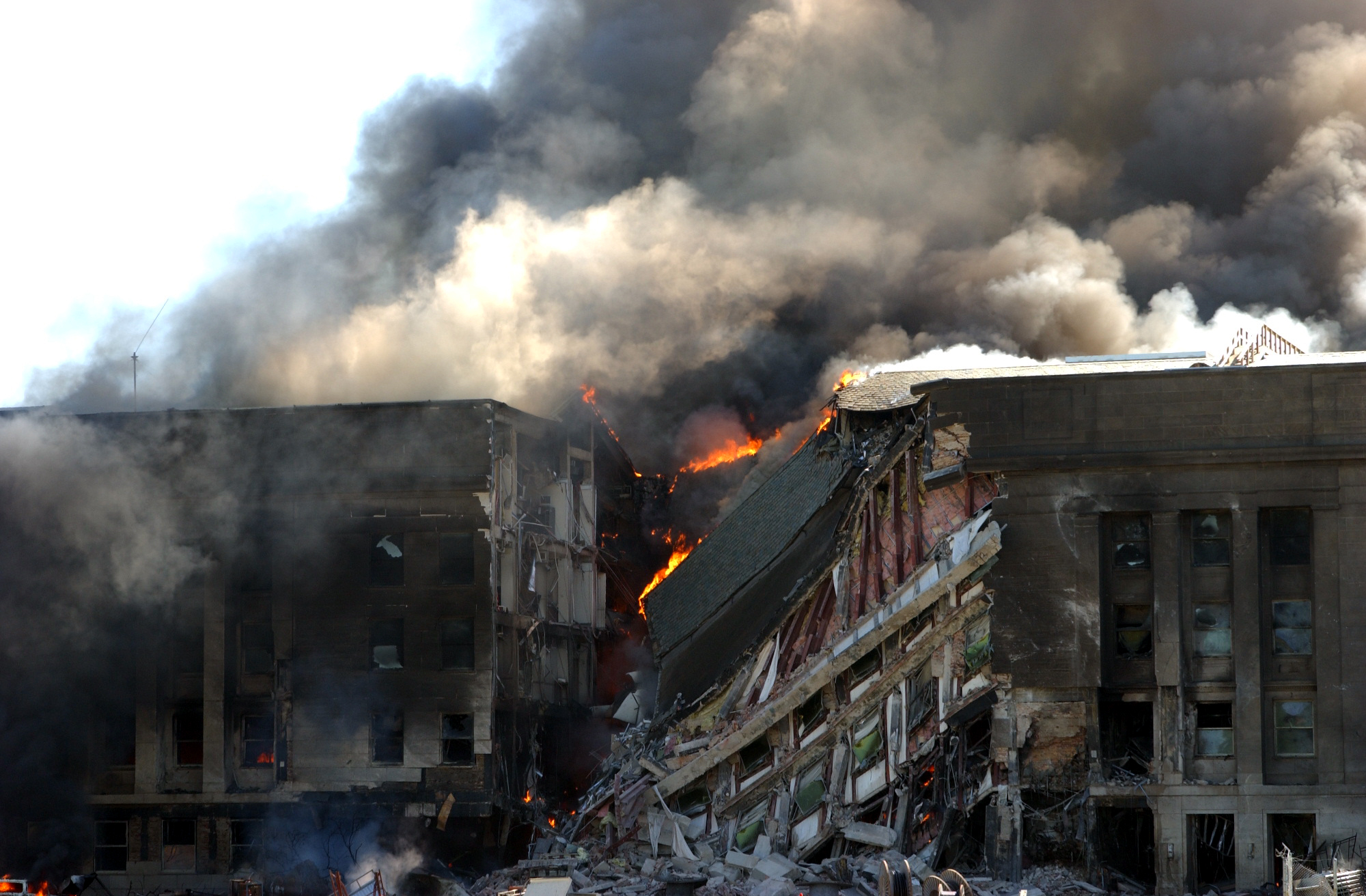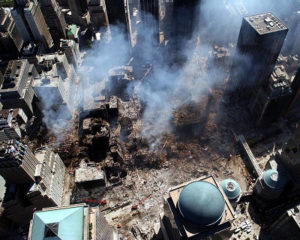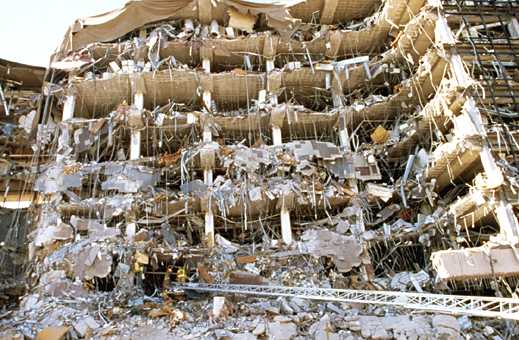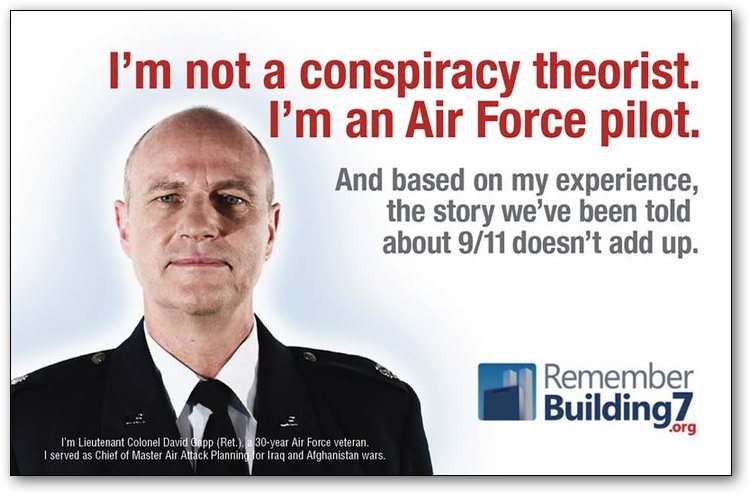
By Craig McKee
Richard Gage admits that his pronouncements on the Pentagon research of Citizen Investigation Team have done more harm than good.
Since he first waded into the debate two-and-a-half years ago, the founder of Architects and Engineers for 9/11 Truth has taken plenty of heat from people on all sides of the question of whether a 757 hit the Pentagon on the morning of Sept. 11, 2001. Gage now feels he should never have gotten involved – and most people agree with him.
“Entering into and rendering a recommendation and then withdrawing that recommendation ended up really stirring the pot Continue reading
Tag Archives: Controlled demolition
Hollywood 9/11 feature to favour human drama and ‘safe’ evidence

By Craig McKee
Can you make an “uplifting” Hollywood movie about 9/11? Should you try?
If your goal is to encourage people to question the official story, should you focus on the human cost of this horrific event with an eye to making the film a successful piece of dramatic entertainment? What evidence should be examined and what should be left out to avoid controversy within the Truth movement and condemnation from the media?
These questions haven’t been simple ones for first-time screenwriter Howard Cohen, who has written the script for A Violation of Trust (original title: Confession of a 9/11 Conspirator). The setting is the first day of a fictitious new Continue reading
A Noble Lie exposes Oklahoma City bombing as gov’t black-op
February 27, 2012
By Craig McKee
The official narrative is simple: A right-wing extremist and his accomplice struck a blow against the American government by setting off a truck bomb in front of the Alfred P. Murrah Federal Building in Oklahoma City, April 19, 1995.
The result was 168 dead, including 19 children, and more than 800 injured. The bombing left the American people fearing a new “terrorist” enemy: the home-grown, militia-loving, anti-government extremist.
Good story. Not true.
The truth about Oklahoma City involved not only a terrible human tragedy but also a Continue reading
The fog of words: how we inadvertently reinforce the 9/11 official story


Whatever words we utter should be chosen with care for people will hear them and be influenced by them for good or ill – Buddha
Words are more treacherous and powerful than we think – Jean-Paul Sartre
By Craig McKee
Words can be used to reveal many truths. They can also obscure the truth, even in ways their users do not intend. Once a particular word used in a particular context has penetrated our consciousness, it’s very hard to dislodge.
Case in point, a favourite term of the 9/11 Truth movement: the “official conspiracy theory” or OCT. This refers to the official story proffered by the government and the “mainstream” media: 19 fundamentalist Muslims led by Osama bin Laden decided one day to punish America for being too darned free.
But it’s not a conspiracy theory. It’s not a theory at all. That’s because the people who created the story know damned well it’s not true. Continue reading
Sanctions in Gallop 9/11 lawsuit send a message: seek justice at your own risk

By Craig McKee
The message is loud and clear. Go after justice for 9/11 in the courts, and not only will you lose, you’ll be punished.
That’s what April Gallop and her lawyer, William Veale, found out as their lawsuit against former vice-president Dick Cheney, former secretary of defense Donald Rumsfeld, and former Joint Chiefs of Staff chairman Richard Myers concluded with a final slap in the face. This came in the form of a $15,000 fine levied against Veale for filing a “frivolous” appeal (the appeal had already been turned down in April of last year).
The decision was handed down by a three-judge panel headed by Justice John M. Walker, who just happens to be George W. Bush’s cousin – proving that the American justice system has a twisted sense of humour at times. Continue reading
When did they know? 35 truthers on how they awakened to the 9/11 lie

January 11, 2012
By Craig McKee
Myth: Most “conspiracy theorists” thought 9/11 was an inside job from day one, because these types of people always imagine elaborate conspiracies even though the evidence rarely backs them up. Most are paranoid and obsessive.
Reality: Many if not most of the members of the 9/11 Truth movement took months or years to begin doubting what we have been told. Those who have become leaders of the movement tend to be intelligent and well educated, and they were open-minded enough to consider evidence that we hadn’t been told the truth by the government or the media.
I decided to pose a question to some of the most notable members of the movement to find out exactly when they twigged that 9/11 was an inside job and not a terrorist attack perpetrated by fundamentalist Muslims. Here’s the question I sent them:
“When did you come to believe that the 9/11 official story was false and that 9/11 was an inside job – and what piece or pieces of information convinced you?”
For the purpose of this article, I’m defining “truth leaders” as being people who have been active in the movement in some visible way – spreading the word either by organizing activities or by researching and writing about or making films about 9/11 to raise awareness. It does not connote an endorsement of their various positions on 9/11.
I was fortunate to receive responses from the majority of the best known truth activists I wrote to. These included David Ray Griffin, Barrie Zwicker, Barbara Honegger, Mike Gravel, Rob Balsamo, Cynthia McKinney, and 30 others listed below. All responses are original and were sent to me by the respondents with the exception of Balsamo’s, which he offered from a previously posted statement.
As you will read, the respondents’ backgrounds run the gamut. There are academics, authors, pilots, engineers, chemists, architects, journalists, politicians, musicians, filmmakers, lawyers, soldiers, and citizen researchers and activists of all kinds. There is a former U.S. senator, a former congresswoman, a high-level NASA executive, a policy analyst in the Reagan White House, and a Nobel Peace Prize nominee.
It’s an impressive group to say the least. In assembling it, I deliberately did not restrict myself to people I most agree with – or who most agree with each other. I sent the question to as many members of the Truth movement as I could. I’m not interested in entertaining criticism that one person or another should have been excluded. I think it’s much more interesting to read responses from people with disparate views. The length of the answers varies greatly, and cuts were kept to a minimum.
Here are the participants in this order:
David Ray Griffin, Barrie Zwicker, Cynthia McKinney, William Veale, Barbara Honegger, Mike Gravel, Craig Ranke, Rob Balsamo, Cindy Sheehan, Niels Harrit, Shelton Lankford, James Fetzer, James Hufferd, Adam Syed, George Ripley, Adam Ruff, Sheila Casey, Bruce Sinclair, Elizabeth Woodworth, Josh Blakeney, Aldo Marquis, Frances Shure, Maxwell C. Bridges, Anna Yeisley, Mark Gaffney, Giulietto Chiesa, Paul Zarembka, Ken Freeland, Jonathan Mark, Dwain Deets, Massimo Mazzucco, Nelisse Muga, Matthew Witt, Simon Shack, Graeme MacQueen.
And here’s what they said:
David Ray Griffin (Retired theology professor; past nominee for the Nobel Peace Prize for his 9/11 work; founder, Consensus 9/11 Panel; author of 10 books on 9/11)
In the fall of 2002, one of my students at the Claremont School of Theology told me that a visiting professor said that 9/11 was an inside job and asked if I wanted to meet him. I said yes, and after talking with him, I told Continue reading
The 9 biggest 9/11 stories of 2011: old fights and new directions

By Craig McKee
Paul Simon stepped to the microphone at Ground Zero and something amazing happened.
The legendary singer/songwriter had been asked to sing the non-threatening Bridge Over Troubled Waters at the ceremony for 9/11’s 10th anniversary ceremonies in New York, but he didn’t. Instead, he launched into a haunting version of another classic that begins, “Hello darkness, my old friend.” Simon had decided that the most appropriate statement for this occasion would come from Continue reading
Truth and consensus: jury still out on Griffin's new 9/11 expert panel
By Craig McKee
Maybe we should start calling it the 9/11 Consensus Movement.
Recent developments in the struggle to widely expose the truth about the fake “terrorist attacks” of Sept. 11, 2001 have focused on apparent efforts to overcome divisions between different factions in the movement. Ironically, these attempts at consensus have themselves been highly controversial.
The latest, and possibly most consequential, move towards consensus is the creation of a collection of experts in a panel called “Consensus 911: The 9/11 Best Evidence Panel.”
The group, announced in September, was put together by prolific 9/11 researcher and author David Ray Continue reading
Journalists would be thrilled to break 9/11 'inside job' story, if there was one: Kay
By Craig McKee
Jonathan Kay lives in a truly wonderful world.
In this world, journalists are just dying to break any story that would show that 9/11 is an inside job. And any who did would surely be rewarded with wealth, fame, and maybe a Pulitzer Prize.
Too bad for them there isn’t a shred of evidence for this ridiculous “conspiracy theory.” If there were, we’d have hundreds of ambitious scribes fighting and scratching to find out who could get that April Gallop interview first. Somebody heard bombs going off in the towers before the planes hit? 60 Minutes would have been there. A big plane got sucked into an impossibly tiny Continue reading
Teach kids conspiracy theories are ‘bad for society’: an interview with Jonathan Kay
 By Craig McKee
By Craig McKee
It’s a challenge to interview someone you’d rather be debating. That was the case when I interviewed Canadian writer and journalist Jonathan Kay this week. Kay, an editor with the National Post, is the author of Among the Truthers, which attempts to examine and explain the world of conspiracy theorists. Why do these otherwise intelligent people believe the “bullshit” that they do, he wonders? He sees the 9/11 Truth movement as being ridiculous and based on arguments that “even an eight-year-old” would see through. I chose to try and cover as much ground in 45 minutes as I could rather than getting into an in-depth debate on any one point. I did find things in his arguments that cry out for further argument , and I will offer my analysis of his remarks in a subsequent post. I encourage readers to offer their own comments at the end of this article.
CM: What is the difference between a conspiracy theorist and someone who does legitimate research to unearth a real conspiracy?
JK: I define according to the method of argumentation of the people who advance the theory in question. I give the example of Iran/Contra, Teapot Dome, the Sponsorship Scandal or Watergate, which of course were real historical conspiracies. If you’re advancing something like this, one person will advance evidence and the other person will refute it, and by that method you Continue reading


